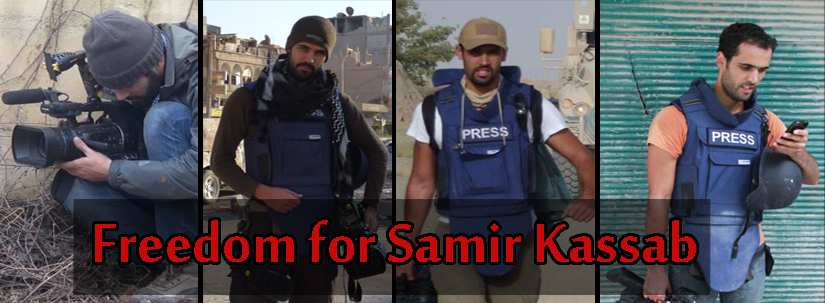
Sky News Arabia announced it has lost contact with its crew
on assignment in Syria since October 15. Lebanese cameraman Samir Kassab and
Mauritanian correspondent Ishak Moctar went missing north of Aleppo. Today, 20
foreign journalists, photographers and writers are missing in Syria.
In addition to Kassab and Moctar, many other media
professionals have been detained or kidnapped in Syria, including but not
limited to Bachar Fehmi Al-Qadumi (Palestine), Austin Tice and James Foley
(US), Marcin Suder (Poland), Didier François, Edouard Elias, Pierre Torres and
Nicolas Hénin (France), Marc Marginedas (Spain) and Konstantin Zhuravlev
(Russia). Most kidnappings have taken place since the beginning of 2013 in
northern Syria.
The SKeyes Center for Media and Cultural Freedom demands the
immediate release of Samir Kassab and all the abductees in Syria, particularly
the journalists. Also, SKeyes asks the relevant groups to provide evidence
showing that they are in good health, as well as any information that may lead
to their release as soon as possible.
Syria is the world’s most dangerous place for journalists in
light of both the growing threat of abduction and the incidents that led to the
killing of dozens of local and foreign journalists. This is why media
institutions avoid sending their correspondents to Syria. Gradually, newspapers
and international media reports are decreasing the coverage of their tragedy
that Syrians are living on a daily basis, which aggravates the crisis and
deflects the attention of public opinion.
The attacks carried out against journalists are war crimes
that the United Nations, the International Criminal Court and human rights
organizations should closely monitor and report in order to eventually
prosecute kidnappers and murderers. By targeting journalists, regime forces and
extremist opposition groups are committing another crime: hiding the continuous
massacre of the Syrian people.